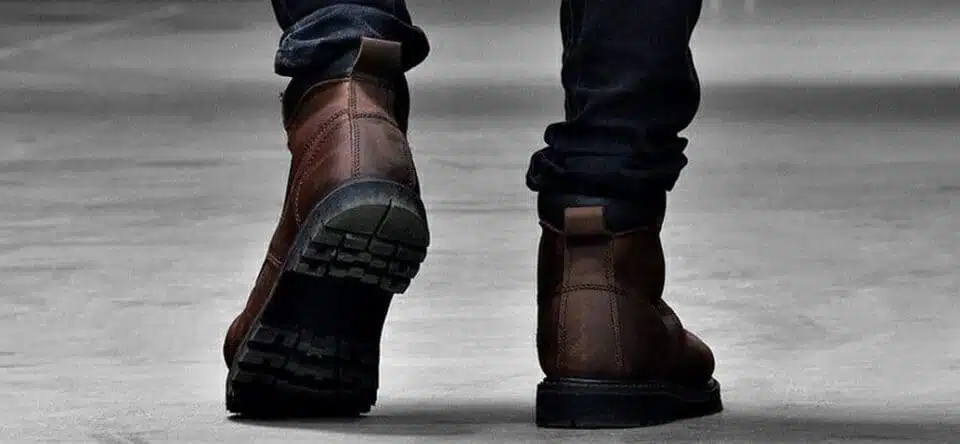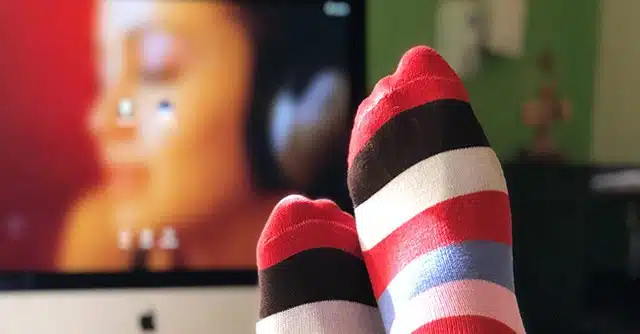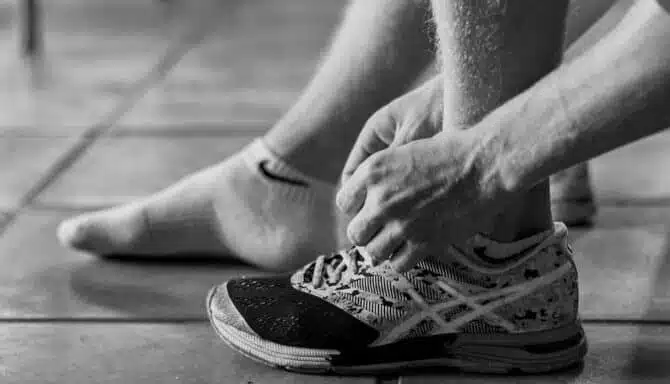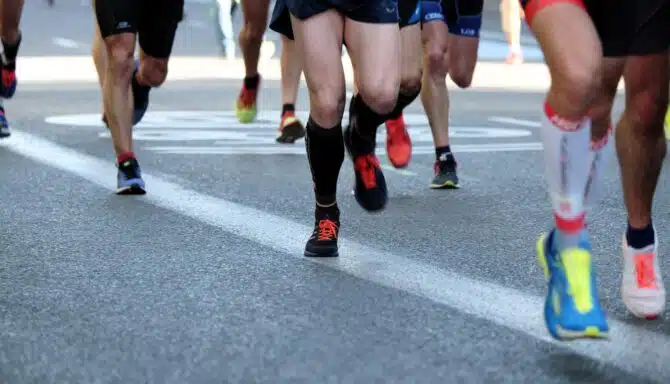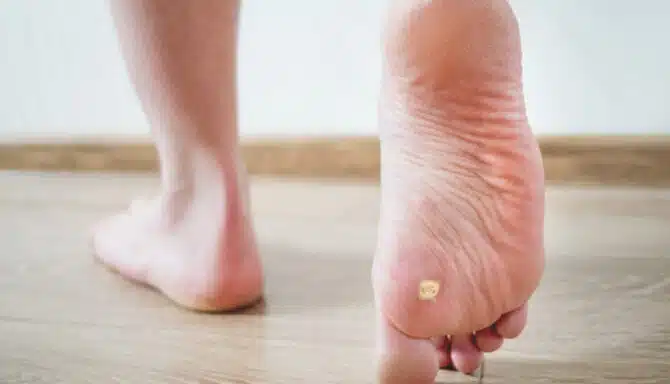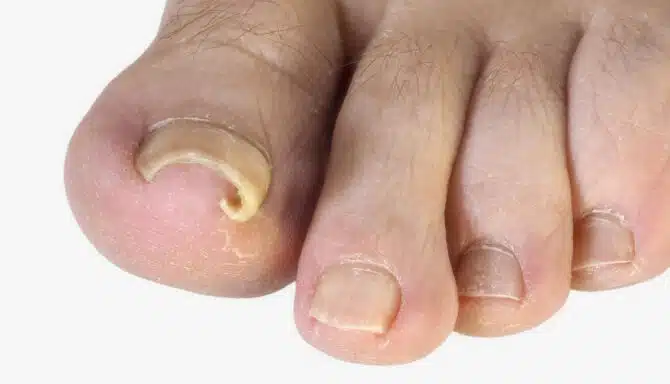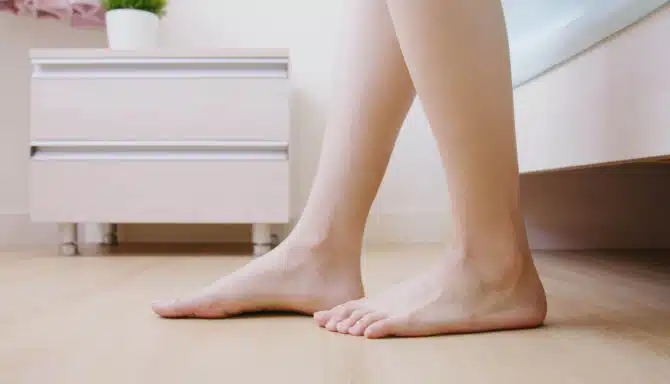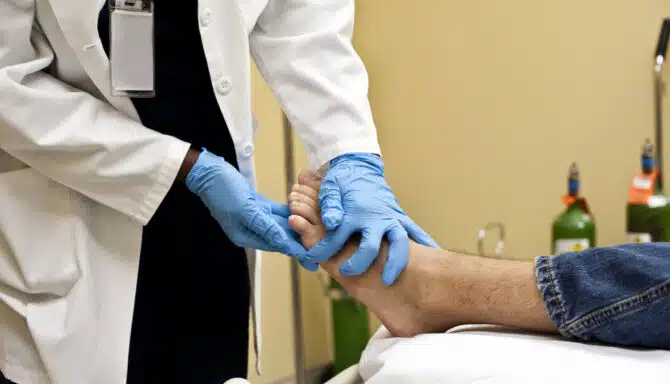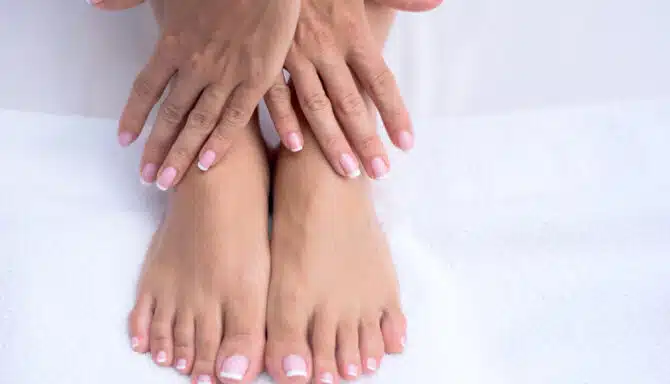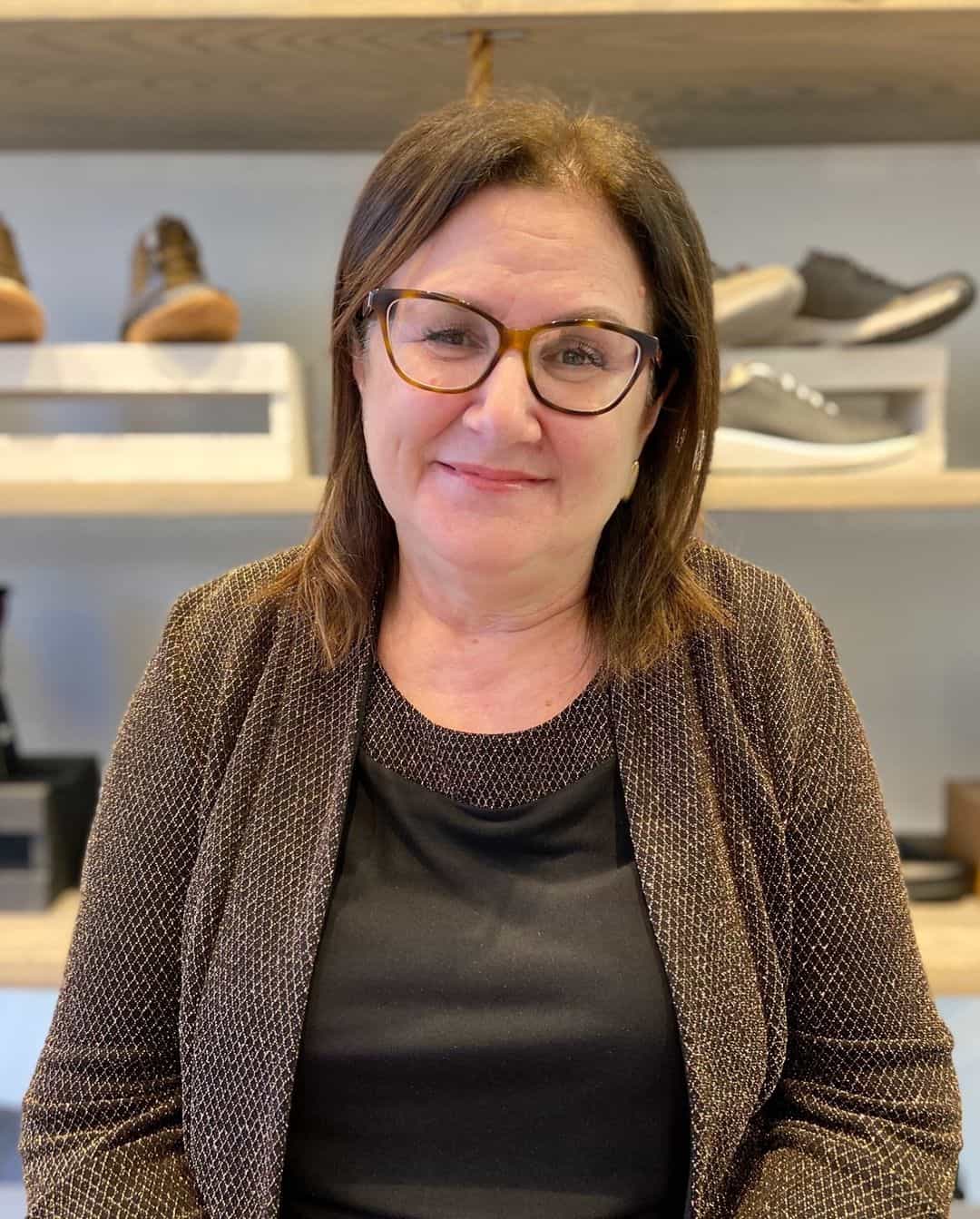Is Work Causing Your Foot Pain? Do My Feet Hurt Because of My Job?
Have you ever thought about how your job or lifestyle choices may affect your feet? Whether you are an athlete, engineer, labour worker, teacher, or health care professional, your feet are very important in your day to day life. And although anyone can develop foot problems, there are certain issues that are more commonly seen in specific professions.
In today’s blog post, we will discuss profession and/or lifestyle specific foot concerns as well as easy tips on how to avoid them. Keeping your feet pain free and in good health will ensure you are less focussed on them and more focussed on doing your job to the best of your ability.
Athlete
Toenail Trauma
The purpose of a toenail is to protect the skin and bone underneath it, which means it takes on quite a bit of distress especially during rigorous activity if not properly protected itself. Due to the enormous amount of strain your feet endure during a game/work out session/training, the fast-paced stop and go motions, and the occasional collision with a member from the opposing team, your toenails are very vulnerable to trauma. Toenails can crack, become bruised, and even fall off. If damaged critically enough or repeatedly, the toenail may exhibit permanent changes such as thickening, discolouration, and stunted growth. Trauma can also encourage fungus to invade and colonize the exposed nail bed leading to stubborn toenail fungus.
Athlete’s Foot
Athlete’s foot, which is a fungal skin infection of your foot that causes skin peeling or a red scaly rash, is another common foot problem seen in athletes. During physical activity, feet can become very sweaty while confined within socks and shoes. This provides a perfect environment for fungi to thrive; dark and moist. Athlete’s foot is also contagious and can be spread from person to person by sharing towels and walking barefoot in gyms and locker rooms.
Solution:
- Wear proper shoes that are activity specific and the correct size and fit to avoid injury
- Wear toe caps to protect the toenails
- Wear moisture-wicking socks
- Disinfect the interiors of the shoe
- Do not share towels and do not walk barefoot in public spaces
Working With Safety Shoes
Hyperhidrosis
Safety shoes are shoes made to protect an individual who is or may be exposed to hazards in the workplace. They are usually made with a protective material (ie steel, aluminium alloy, carbon fiber) at the toes as well as other sturdy materials at the soles and upper of the shoe. They may be puncture-resistant, slip-resistant, heat resistant, acid-resistant etc. When bought incorrectly, safety shoes can be occlusive and results in excessive sweating also known as hyperhidrosis. Hyperhidrosis and inadequate air circulation in footwear can lead to skin infections, foul odour, and heat rashes.
Solution:
- Buy a safety shoe that is protective and breathable
- Wear moisture-wicking socks
- Change your socks throughout the day when they get too damp
- Use foot powders to soak up the excess moisture
Desk Jobs
Swollen legs and feet
If you are sitting for extended periods of time, you may start to notice swelling at your legs and feet by the end of the day. This is because when you are inactive, the muscles in your legs do not help to pump the blood back up to the heart. With age, this can worsen, and swelling can lead to heavy and tired legs, maybe even varicose veins. These are all signs of venous insufficiency, which suggests your veins are not efficiently pushing the blood from your lower extremities back to the heart.
Shortened calf muscle
Some jobs have a dress code, we get it. But, believe it or not, your footwear choices can really affect the anatomy of your feet. For instance, wearing high heels on a regular basis can effectively shorten the calf muscle. Tight calves can produce symptoms such as sudden pain at the back of your calf or heel, especially when the foot is flat on the ground. Sitting with your heels lifted from the ground (tip-toed position) can also lead to this.
Ingrown toenails
Wearing improper footwear can also cause nail issues. Tight-fitting and narrow shoes apply pressure to the toes, pushing them together in a small space, which may encourage toenails to curve and become ingrown over time.
Solution:
- Walk around every couple of hours to get the muscles in your calf working
- Wear compression stockings
- Do not sit with your heels lifted off the ground
- Do not wear shoes with a heel higher than 2 inches
- Do not wear narrow shoes
Hospital Staff / Health Care Workers / Restaurant / Food Industry
Heel pain/ball of foot pain/arch pain
Working as a healthcare professional, a waiter/waitress, chef, or even a teacher, you are on your feet for most of the day. Unless you have a perfect foot, the sheer time spent on your feet can lead to overuse injuries and soft tissue strains resulting in inflammation and overall foot pain. More often than not, these conditions are caused by faulty foot mechanics.
Solution:
- Wear shoes with arch support, good torsional stability, and adequate cushioning
- Wear orthotic inserts
- If pain is worsening or consistent, have your feet assessed by a foot care professional
As always, if you have serious concerns with your feet, do not wait to seek attention from a Licensed Chiropodist.
Your Solutions Live Here!
All under one roof! Our team is trained to handle any and all your foot health concerns. From mild, to critical, we cover all sides of the foot needs spectrum. Call us to ask about actionable steps towards your solution today!
